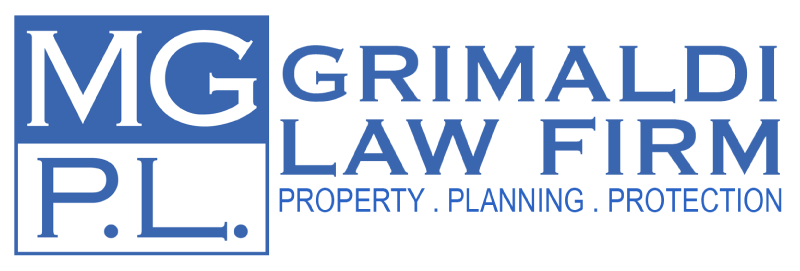Buying property in Miami means following important legal rules. Property records must clearly show who owned the land for the past 30 years, and buyers from other countries need special tax papers and must follow foreign investment laws. Miami has strict rules about what you can build in different areas – from homes to businesses to mixed buildings. If you buy a condo, you’ll need to follow building rules about how to use and change your unit, or you might have to pay penalties. Property taxes are set by the county, but you can challenge them within 25 days if you disagree. To make smart and safe property investments in Miami’s busy market, you need to know these rules, plus laws about building near the beach and what must go in your purchase agreement.
Key Takeaways
- Foreign investors must obtain an ITIN/EIN and establish a US bank account before purchasing Miami real estate.
- Title searches spanning 30 years are mandatory to ensure clear ownership and protect against potential claims.
- Miami zoning laws dictate property usage, building specifications, and development restrictions based on specific area designations.
- Condo purchases require thorough review of association rules regarding rentals, modifications, and financial obligations.
- Property tax assessments occur annually, with appeal rights available within 25 days of receiving valuation notices.
Florida Property Title Requirements
Property titles in Florida must meet three main rules: owners must show a clear history of who owned the property before them, the property must be free of any debts or claims, and all documents must be filed with the local county office.
Before buying property, a detailed search must be done to check past owners and look for any claims on the property. Florida law requires these searches to go back at least 30 years.
Title insurance helps protect both lenders and property owners if problems with ownership come up later, such as mistakes in public records or fraud.
Florida requires title companies to keep enough money in reserve and follow strict rules when checking titles. Anyone buying property should make sure their title company has a license from the state’s Department of Financial Services and enough insurance to cover problems.
The county office keeps all records of property sales, loans, and cleared debts.
Foreign Investment Legal Considerations
When buying Miami real estate, foreign investors need to follow certain rules and laws. It’s important to know about tax agreements between countries and how investments are protected. Foreign buyers must follow FIRPTA rules, get a tax ID number, and think about how their property will be handled after death.
| Requirement | Description |
| Tax ID | Foreign investors need ITIN or EIN |
| FIRPTA | 15% withholding on property sales |
| Entity Structure | LLC or Corporation registration |
| Banking | US bank account establishment |
| Reporting | Annual tax filing obligations |
Foreign investors should work with good lawyers to make sure they follow FinCEN rules and laws about preventing money laundering. They need to look carefully at tax agreements between the US and their home country to pay less tax legally and keep their investment safe.
Miami Zoning Laws
To make money from Miami property, you need to know the city’s rules about how land can be used. Miami splits its land into different zones – some for homes, some for stores, some for factories, and some that allow a mix. Each zone has its own rules about what you can build there.
Miami sets clear rules about how tall buildings can be, how many can fit in one area, how far they must be from the street, and how big they can be compared to their lot size.
Some neighborhoods have extra rules, like areas with old buildings that need protecting or spots near the water. You also need to follow rules about parking spaces, protecting nature, and connecting to city services.
Before buying property, check what you can build there now and what might change in the future by talking to Miami’s Planning and Zoning office.
Breaking these rules can cost you money and slow down your project.
Condo Association Rules and Regulations
When buying a Miami condo, investors must follow both city rules and condo association rules. These rules spell out what owners can and cannot do with their units, including changes they can make, how many people can live there, whether they can rent it out, and if they can have pets.
The rules also explain what owners must pay for and who takes care of what in the building. Before buying, investors should carefully read all condo rules to avoid future problems with their investment.
The rules cover shared spaces like pools and gyms, including when people can use them, how to book them, and what fees owners must pay. Breaking these rules can lead to heavy fines or legal claims against the unit.
New Florida laws say condo associations must keep careful records and show owners all rules and paperwork quickly, making sure everything is open and clear about how the condo is run.
Property Tax Assessment Guidelines
Property taxes in Miami are set by the county tax office, which looks at how much properties are worth based on local market prices, home upgrades, and tax rules.
Each year, homeowners get a tax notice in the mail that shows their property’s value.
It’s important to check this notice carefully. Many people can pay less tax by applying for special breaks, like the homestead exemption. Older people, veterans, and those with disabilities may get extra tax savings.
If you think your property’s value is wrong, you can challenge it by filing papers with the appeals board.
You must do this within 25 days of getting your notice. To make a strong case, bring proof like recent home value reports or sales prices of similar homes in your area.
Real Estate Contract Essentials
A valid real estate contract in Miami needs key parts to work under Florida law. These parts must show who’s buying and selling, what property is being sold, how much it costs, when the sale will close, and what the deal includes.
When working out the details, both buyers and sellSers need to protect themselves by clearly stating what must happen for the sale to go through.
Most contracts need rules about getting a loan, checking the property’s condition, looking into who owns it, and setting deadlines for all these steps.
The contract must also say how much money the buyer puts down first, who pays which closing fees, and what the seller must tell the buyer about the property.
Florida law says sellers must tell buyers about things like environmental problems, building issues, and any problems that could make the property worth less or less appealing.
Coastal Development Restrictions
Miami’s building rules near the coast follow three levels: federal, state, and local rules.
Anyone wanting to build must follow strict rules that protect coastal nature and lower environmental risks. Federal rules mainly deal with keeping wetlands safe and making sure buildings can handle floods, while state rules focus on stopping beach erosion and keeping buildings back from the shore.
Local rules add more limits through building zones and permits that fit Miami’s special coastal setting. Builders need many approvals, including checks on how projects affect nature and proof that buildings are strong enough.
They must think about how high to build, how to protect against big waves, and how water will drain. Breaking these rules can lead to big fines and building delays. Builders need to know all these rules well, especially when building in places that might face rising seas and bad storms.
Frequently Asked Questions
How Do I Handle Squatters Who Have Occupied My Vacant Miami Property?
Report squatters to the police and take legal steps to remove them through Florida courts. You must use proper legal channels – don’t try to force them out yourself, since squatters can gain certain rights after living in a property for a while.
What Are the Legal Implications of Running an Airbnb Without HOA Approval?
Running an Airbnb without getting your HOA’s okay breaks their rules and can get you in trouble. You might have to pay penalties, face a lawsuit, be forced to stop renting, or even have claims put against your property. Most HOAs have clear rules that don’t allow quick, short-term rentals like Airbnb.
Can I Legally Restrict Certain Demographics From Renting My Miami Properties?
Picking tenants based on race, religion, or other protected groups is against both U.S. and Florida housing laws. When choosing renters, landlords can only look at things like how much money they make, if they pay bills on time, and their past experiences as renters.
How Do Hurricane Insurance Claims Affect Future Property Value and Insurability?
Making an insurance claim after a hurricane can hurt your home’s value and make future coverage more expensive. Taking steps to protect your home from storms and keeping clear records of what your insurance covers helps you stay insured and keeps your property attractive to buyers.
What Legal Protections Exist for Buyers During Miami’s Off-Plan Development Delays?
Buyers in Florida have clear rights when developers fall behind schedule. The law ensures their money stays safe in protected accounts and lets them take action if building takes too long. Their purchase contracts spell out construction deadlines and what happens if those deadlines aren’t met.
Conclusion
Buying property in Miami means following many important rules and laws. You need to know about property titles, rules for foreign buyers, what you can build in different areas, condo rules, and special laws for buildings near the ocean. To succeed, you must work with good lawyers, keep careful records, and stay up-to-date with Miami’s changing rules. Following these basic legal steps helps keep your property safe and helps you make more money in Miami’s busy real estate market. Let our experienced team at Real Estate Law Fl guide you through every step of your Miami property journey – from contracts to closing and beyond.

